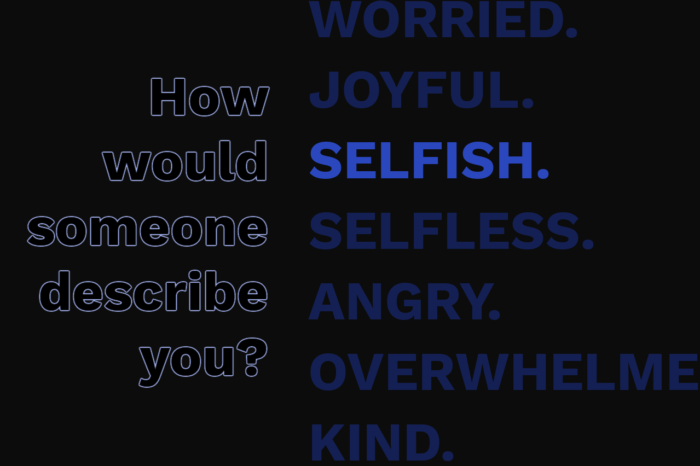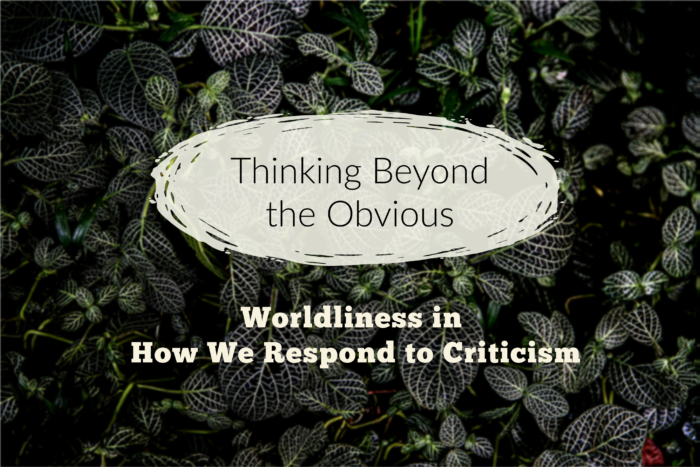He Shall Direct Thy Paths
Proverbs 3:5-6 are probably two of the most-loved verses in all of scripture. They remind us to trust the Lord, to lean not on our own understanding, and promise us God’s direction. But as I was reading this chapter this morning, I realized that these two little verses must be taken in context. They are surrounded by some other pretty important nuggets of wisdom that can’t be overlooked if we long to trust the Lord and have Him direct our paths.
Such as…
(Vs. 1-2) we dare not forget God’s law and we must work diligently to keep His commandments. We are even told that, as a rule, doing this will give us a long life and peace. Of course, there are legitimate exceptions to this due to God’s sovereign will, but we can see how living a moral, upright life will keep us from a lot of harm.
(Vs. 3) Do not forsake mercy and truth. Can we overestimate the value of mercy and truth in the life of a believer?
Truth keeps us on the straight and narrow path and keeps us from deception. Our only hope of protection and a victorious Christian life is to love the truth of God’s Word more than we love anything else. This is easy to write but hard to live. We all have areas in which we are tempted to ignore, bypass, or outright reject the truth of scripture because the cost is so much higher than we are willing to pay. It is so important that we ask the Lord to give us courage and steadfastness and the willingness to submit to and obey His Word, no matter the cost.
Mercy is what will keep us humble as we seek to follow the truth. My grandfather used to say that “pride is a handle that fits any tool” and there is no tool that it fits better than trying to do what’s morally right and obeying God’s commands. But mercy will keep us from turning up our noses at others and will fill us with humility as we recognize that all genuine believers have victories and we all struggle—just in different ways. Mercy and grace abound in humility of heart and live in perfect harmony with Truth.
(Vs. 7) And then this most important verse after verse 6. This verse explains how we are practically able to execute verses 5 and 6.
First, we are not to be wise in our own eyes. Here we go back to pride again. Pride will keep us from submission to the Lord, it will keep us leaning on our own understanding instead of the Lord’s, it will cause us to stray from the narrow path, AND it will destroy our relationships.
Second, we are to fear the Lord. What does this mean? That we are “scared” of Him? No, of course not. The fear of the Lord means having the proper, reverential, submissive attitude towards the Lord. It means we live our lives with God at the center, instead of ourselves, holding Him in awe and recognizing His greatness, omnipotence, and glory. Earlier in this book, we read that the fear of the Lord is the beginning of wisdom (Prov. 1:7). That’s how important it is that we fear the Lord.
Third, we are to depart from evil. We cannot expect the Lord to direct our paths if we are purposely walking outside His will in sin or worldliness. Evil comes in all shapes and sizes and, through our study of God’s Word, we soon begin to understand that we have far too narrow view of this word. It goes far beyond the “awful stuff” we tend to put in its category and encompasses but is not limited to: Wicked entertainment that goes against God both morally and philosophically; immodest dress and other ways we draw attention to ourselves; an unforgiving and unloving spirit; selfishness; rebellion against God’s laws; and passion for the world’s wealth and status (just to name a few!) If we are honest with ourselves, we all have something that tempts us to do evil. This is why it is so important that we be examining our hearts and our lives on a regular basis.
(Vs. 8) Doing these three things will not only help us to trust the Lord, lean not our understanding, and help us discern God’s direction for our path; but they will also make us healthy spiritually. They will enable us to live a victorious Christian life.
Sometimes we can oversimplify the words of God. And, while loving just two verses we pull out of scripture isn’t necessarily bad, it is so important that we study our favorite passages in the context which they are given. We will get so much more from God’s Word when we take the time to meditate upon our favorite verses in their proper context.
𝘔𝘺 𝘴𝘰𝘯, 𝘧𝘰𝘳𝘨𝘦𝘵 𝘯𝘰𝘵 𝘮𝘺 𝘭𝘢𝘸;
𝘣𝘶𝘵 𝘭𝘦𝘵 𝘵𝘩𝘪𝘯𝘦 𝘩𝘦𝘢𝘳𝘵 𝘬𝘦𝘦𝘱 𝘮𝘺 𝘤𝘰𝘮𝘮𝘢𝘯𝘥𝘮𝘦𝘯𝘵𝘴:
𝘍𝘰𝘳 𝘭𝘦𝘯𝘨𝘵𝘩 𝘰𝘧 𝘥𝘢𝘺𝘴, 𝘢𝘯𝘥 𝘭𝘰𝘯𝘨 𝘭𝘪𝘧𝘦,
𝘢𝘯𝘥 𝘱𝘦𝘢𝘤𝘦, 𝘴𝘩𝘢𝘭𝘭 𝘵𝘩𝘦𝘺 𝘢𝘥𝘥 𝘵𝘰 𝘵𝘩𝘦𝘦.
𝘓𝘦𝘵 𝘯𝘰𝘵 𝘮𝘦𝘳𝘤𝘺 𝘢𝘯𝘥 𝘵𝘳𝘶𝘵𝘩 𝘧𝘰𝘳𝘴𝘢𝘬𝘦 𝘵𝘩𝘦𝘦:
𝘣𝘪𝘯𝘥 𝘵𝘩𝘦𝘮 𝘢𝘣𝘰𝘶𝘵 𝘵𝘩𝘺 𝘯𝘦𝘤𝘬;
𝘸𝘳𝘪𝘵𝘦 𝘵𝘩𝘦𝘮 𝘶𝘱𝘰𝘯 𝘵𝘩𝘦 𝘵𝘢𝘣𝘭𝘦 𝘰𝘧 𝘵𝘩𝘪𝘯𝘦 𝘩𝘦𝘢𝘳𝘵:
𝘚𝘰 𝘴𝘩𝘢𝘭𝘵 𝘵𝘩𝘰𝘶 𝘧𝘪𝘯𝘥 𝘧𝘢𝘷𝘰𝘶𝘳 𝘢𝘯𝘥 𝘨𝘰𝘰𝘥 𝘶𝘯𝘥𝘦𝘳𝘴𝘵𝘢𝘯𝘥𝘪𝘯𝘨
𝘪𝘯 𝘵𝘩𝘦 𝘴𝘪𝘨𝘩𝘵 𝘰𝘧 𝘎𝘰𝘥 𝘢𝘯𝘥 𝘮𝘢𝘯.
𝘛𝘳𝘶𝘴𝘵 𝘪𝘯 𝘵𝘩𝘦 𝘓𝘖𝘙𝘋 𝘸𝘪𝘵𝘩 𝘢𝘭𝘭 𝘵𝘩𝘪𝘯𝘦 𝘩𝘦𝘢𝘳𝘵;
𝘢𝘯𝘥 𝘭𝘦𝘢𝘯 𝘯𝘰𝘵 𝘶𝘯𝘵𝘰 𝘵𝘩𝘪𝘯𝘦 𝘰𝘸𝘯 𝘶𝘯𝘥𝘦𝘳𝘴𝘵𝘢𝘯𝘥𝘪𝘯𝘨.
𝘐𝘯 𝘢𝘭𝘭 𝘵𝘩𝘺 𝘸𝘢𝘺𝘴 𝘢𝘤𝘬𝘯𝘰𝘸𝘭𝘦𝘥𝘨𝘦 𝘩𝘪𝘮,
𝘢𝘯𝘥 𝘩𝘦 𝘴𝘩𝘢𝘭𝘭 𝘥𝘪𝘳𝘦𝘤𝘵 𝘵𝘩𝘺 𝘱𝘢𝘵𝘩𝘴.
𝘉𝘦 𝘯𝘰𝘵 𝘸𝘪𝘴𝘦 𝘪𝘯 𝘵𝘩𝘪𝘯𝘦 𝘰𝘸𝘯 𝘦𝘺𝘦𝘴:
𝘧𝘦𝘢𝘳 𝘵𝘩𝘦 𝘓𝘖𝘙𝘋, 𝘢𝘯𝘥 𝘥𝘦𝘱𝘢𝘳𝘵 𝘧𝘳𝘰𝘮 𝘦𝘷𝘪𝘭.
𝘐𝘵 𝘴𝘩𝘢𝘭𝘭 𝘣𝘦 𝘩𝘦𝘢𝘭𝘵𝘩 𝘵𝘰 𝘵𝘩𝘺 𝘯𝘢𝘷𝘦𝘭,
𝘢𝘯𝘥 𝘮𝘢𝘳𝘳𝘰𝘸 𝘵𝘰 𝘵𝘩𝘺 𝘣𝘰𝘯𝘦𝘴.
* Proverbs 3:1-8 *










